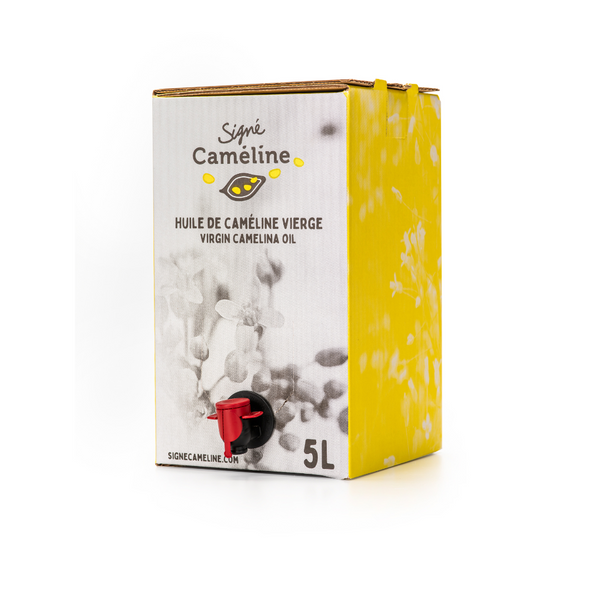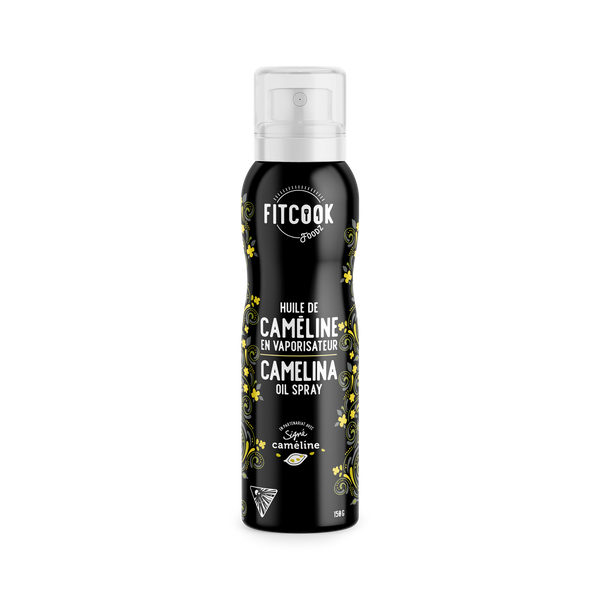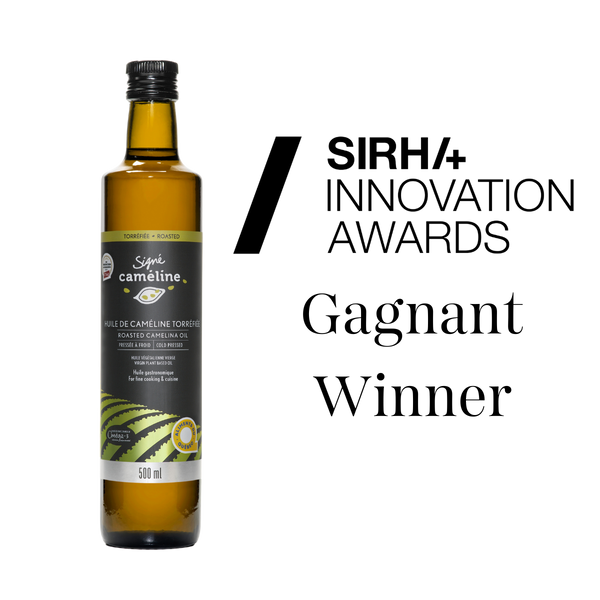Camelina, an eco-responsible and certified GMO-free crop
•Posted on July 14 2023

Camelina is an eco-responsible crop because it brings a new agricultural variety and offers new biodiversity for the soil. We produce sustainably, in order to minimize our ecological footprint. We work with soil conservation techniques and crop rotation, without seed coating, fungicides or insecticides. In addition, we cultivate with organic and natural fertilizers.
Sow in an innovative and natural way


We are committed to minimizing our environmental footprint. By reducing tillage, greenhouse gas emissions that are naturally released from the earth are reduced. We sow on frozen soil, without it being reworked, and on the mulch left over from the previous crop. This way of doing things allows you not to disturb the microbial life and insects in the soil. We work with the forces of nature by sowing early and intervening as little as possible in the maturation process of the camelina plant. This early spring allows us to have flowering fields in June. This also delights the bees integrated into our culture while improving the pollination of our fields. Working with respect for nature is a source of pride.

A positive environmental footprint
Since 2015, our fields have been monitored by agronomists to observe the positive impacts of camelina on our soils. This allowed us to observe that the camelina is not attacked by insect pests and therefore does not require any treatment.
We were also able to observe a 99% reduction in the number of wireworms in the years following camelina in the soil. This worm is known to ravage crops by attacking seeds in the soil and is the cause of seed dressing application. It is a technique widely used by seed companies and also very controversial in relation to its negative impact on the reduction of bees. We observe that camelina seems to naturally and drastically reduce the number of wireworms so feared by farmers and the source of significant controversy over the survival of bees.
At Oliméga, we do not use any seed coating. In addition, camelina could be a solution to improve the fate of pollinating insects. We want to increase our surface areas and multiply this beneficial effect of camelina on our environment.
A factory dedicated to camelina: responsible energy construction

Our processing plant is equipped with a wall of solar panels with an air chamber heated by solar energy. This is an innovative initiative that saves 23 tonnes of greenhouse gases each year, which is the equivalent of 10 cars withdrawn from the market. An innovative design carried out by Enerprox inc. a Quebec company. Another Oliméga pride!
Our sales manager travels across Quebec in an electric car. We have also installed a charging station for electric cars in front of our factory.
We recycle our residues so as not to have waste in the environment and do not have wastewater.



